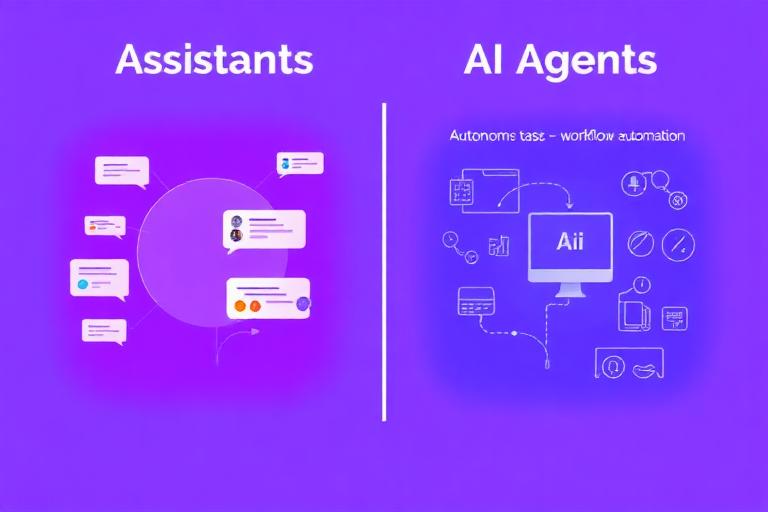
AI Assistants vs. AI Agents: How Extended Teams Actually Get Work Done
Understand the difference between AI assistants and AI agents, and how the right AI teammate helps teams get work done.
Many organizations jump into AI with high hopes, only to walk away underwhelmed. They expect transformative outcomes but end up with chat tools that answer questions and little more. Why? Because they're using AI assistants and expecting the power of agents.
This distinction matters. Understanding the difference between assistants and agents is the key to unlocking AI's real potential in business.
What AI Assistants Do
AI assistants are reactive tools. They wait for input, provide information, and execute basic commands. They might answer FAQs, summarize documents, or draft emails—but they don't understand broader goals, nor do they maintain long term context.
Their limitations include:
- No memory of past tasks or preferences
- No ability to act independently or across tools
- Constant need for prompts and supervision
They're useful in isolated moments but incapable of driving outcomes on their own. For companies seeking operational leverage, assistants fall short.
What AI Agents Do
AI agents, by contrast, are proactive, persistent, and goal oriented. They:
- Understand high-level objectives and break them into steps
- Maintain memory and context over time, learning as they go
- Act independently across multiple tools to achieve outcomes
For example, instead of asking an assistant to 'summarize this sales call,' you might have an agent that:
- Joins the call, takes notes, and summarizes it.
- Updates the CRM with relevant details.
- Sends a personalized follow-up email.
- Flags important points for leadership.
This level of orchestration transforms AI from a helper to a team member.
Real Impact Comes from Agents
When teams adopt agents, they see exponential gains:
- Project cycles are shortened because agents handle coordination, handoffs, and follow through.
- Knowledge isn't lost in Slack or buried in documents it's surfaced, organized, and acted upon.
- Human team members feel more focused and energized, with more time for meaningful work.
In short: Assistants answer questions. Agents achieve goals.
Ready to Get Started?
Experience the difference with AI agents. Join the WeeQo waitlist and be a part of our community and start building your extended team today.